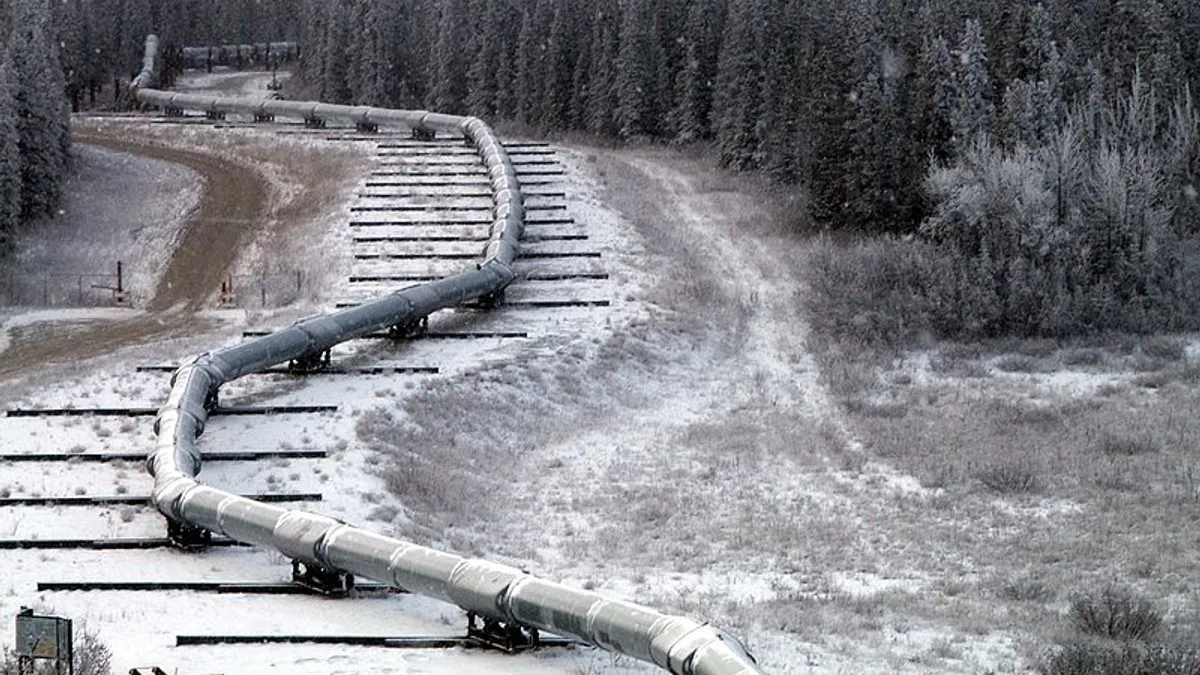Dive Brief:
- Sen. Tim Kaine (D-VA) has asked the Federal Energy Regulatory Commission to grant rehearing of two pipeline certificates it approved last year at a time when the agency had just three regulators rather than a full complement of five.
- FERC approved the Atlantic Coast and Mountain Valley pipeline projects in two 2-1 votes in October.
Atlantic Coast will run 600 miles, stretching from West Virginia into North Carolina, along with three planned compressor stations; the Mountain Valley line would stretch 300 miles through Virginia and West Virginia. - Kaine's call for FERC to reconsider its approvals comes as the U.S. Army Corps of Engineers and National Park Service have granted permits and right-of-ways that will allow the Mountain Valley line to move forward.
Dive Insight:
It is not unusual that critics are seeking rehearing in these two pipeline cases — they are among the most controversial gas projects being developed today. But Kaine's reasoning is notable, arguing there is a "real concern about whether the divided rulings by a partial Commission fairly reflect the FERC position."
FERC approved the two pipeline applications in October after the Commission spent nearly six months without a quorum. Acting Chairman Neil Chatterjee and Commissioner Robert Powelson, both confirmed to FERC in August, voted for the projects, while Commissioner Cheryl LaFleur voted against.
Since then, Kaine's letter points out, two new regulators joined FERC — Republican Kevin McIntyre, who is now Chairman, and Democratic Commissioner Richard Glick.
Split decisions were "most unusual" last year, the senator noted, as 98% of orders were unanimous, though the commission does issue many procedural and notational orders which skew that figure upwards.
LaFleur's dissent noted the similar routes, timing and demand centers served by the two pipelines, arguing that FERC should reform how it assesses economic need for projects. Glick expressed similar concerns during his first open meeting as a commissioner last month.
In his letter, Kaine also requested more information on so-called "tolling orders," which FERC issues in order to take additional time on a request. Some environmental groups argue FERC uses these orders to curtail states' ability to block pipeline construction, and the senator said he wanted some clarification on how the orders are used.
"In many cases in which a request for rehearing is filed, FERC issues a tolling order to take more than the allotted 30 days to decide on the request, during which time legal options are frozen but construction may proceed," Kaine wrote. "This suggests that even if an original FERC decision changes upon either rehearing or judicial order, it could be moot if the project is already built and any impacts already felt."















